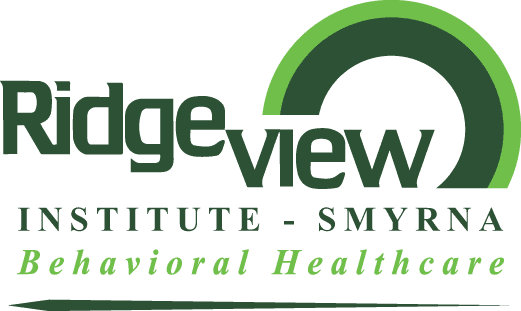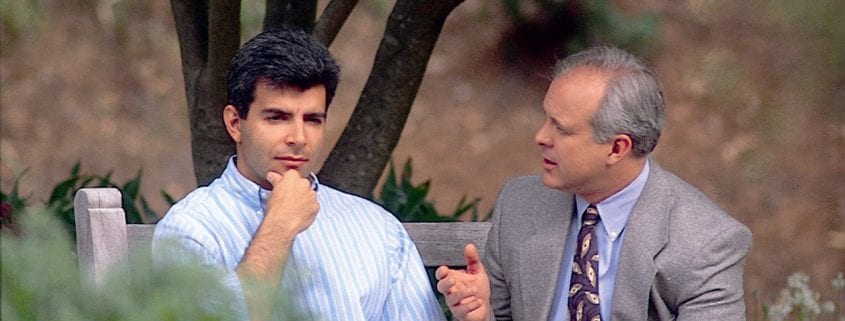Paul H. Earley, M.D. and Michael L. Fishman, M.D.
The concept of addiction has moved from the fringes of our society into the mainstream of our lives over the past twenty years. In the 1970s you would never hear the average American say, “I’m addicted to my morning coffee,” or “I’m hooked on racquetball.” Most people believed that addiction only happened among hippies and street criminals, never in their own family, workplace, or neighborhood. Pick up any popular magazine or turn on the television today, however, and you’re likely to find another actor or musician talking openly about recovery from addiction. Membership in 12-Step recovery programs such as Alcoholics Anonymous has doubled just in the past 10 years, while more and more employers are recognizing the devastating effects of addiction among their employees.
Despite all of this publicity and attention, however, addiction is one of the most misunderstood diseases of our time. What exactly is addiction, what causes it, and how does it affect families? How can people who suffer from addiction get help, and what is the likelihood they will recover? This article provides some answers to those and other questions concerning this devastating disease. For more information, contact the Ridgeview Access Center, (770) 434-4567, or 1 (800) 329-9775.
WHAT IS ADDICTION?
Some people, no matter how much they drink or how many drugs they use, never develop an addiction. Others, who drink or use little by comparison, become so severely addicted that they lose their health, families, livelihood, and, ultimately, their lives. It’s a curious fact, but it makes sense when you understand the true nature of addiction. Addiction is a potentially fatal disease that can manifest itself in many different ways. An alcoholic and a cocaine addict are addicted to different substances, for example, but they both suffer from the same powerful addictive drive, as do the compulsive gambler, overeater, nicotine addict, and sex addict. They also are affected by the chemical or behavior they use in similar ways: at least in the early stages of addiction, it lessens their emotional pain and makes them feel whole. In later stages, the addictive drive continues more powerfully than ever but the substance or behavior no longer covers the pain. In effect, it quits working.
The addictive drive is partly hereditary. Although every addict does not come from a family of addicts, many do. Addicts do not inherit their addiction, but many inherit the proclivity for it from their biological parents. Whether they actually become addicted depends on a complex interplay between this hereditary trait and their family structure, personality, and environment. Families that are shame-based or in which some kind of abuse occurs – whether sexual, physical, or emotional – have a high incidence of addiction. Environmental factors include the availability of drugs or alcohol and the amount of social pressure that exists to use them. With alcohol, roughly one in seven Americans have a predisposition to addiction, and with enough exposure to the drug they will develop an addiction. Nicotine addiction, rarely acknowledged in our society as a serious disease, kills three times more people each year than every other addiction combined.
Symptoms of addiction, no matter what the substance, also tend to be the same. Denial and dishonesty are at the top of the list as primary symptoms, which make it difficult for the addict to seek help. Other symptoms include psychological and physical dependence and increased tolerance for the drug of choice. An individual who could get drunk on a few beers early in his or her drinking career, may find later that it takes twice that amount to achieve the same effect. What begins as social drinking or occasional drug use, once addiction takes over, becomes the center of life itself. The addict will build his or her days around getting enough of the drug of choice, while other aspects of life, including work, friendships, and family, deteriorate from neglect.
THE FAMILY DISEASE
Addiction truly is a family disease. Spouses often feel responsible for their partner’s addiction, and parents feel responsible for the addictions of their children. Children of addiction often suffer from abuse or neglect, and they often develop addictions of their own later in life. Families feel a need to keep the addiction a secret out of shame, fear of criticism, pride, a desire to protect the addict, and fear of financial consequences. In trying to keep this difficult secret, family members often become controlling and rigid, yet at the same time they often feel powerless, hopeless, and depressed. In a very real sense, the family becomes as disabled by the addiction as the addicted person does.
Although addiction causes great stress in families, it need not destroy them. With proper treatment, families actually can become stronger and closer as the result of addiction. Support may begin with participation in an Al-Anon group, a self-help organization in which members share their experience, strength, and hope to help each other deal with the effects of addiction in the family. Young adolescents can find similar help in Alateen, and many communities have Adult Children of Alcoholics (ACOA) groups as well.
GETTING HELP FOR THE ADDICT
Sometimes, people suffering from addiction realize the problem themselves and seek treatment, either in a hospital or through a 12-Step program. More often, however, the addict is steeped in denial and will continue to drink, use drugs, overeat, or engage in other addictive behavior until he or she self-destructs. It usually falls on the family and friends of the addict to intervene, and the sooner the better. Early intervention in the course of addiction saves lives, can reduce the amount of treatment needed, and can increase the likelihood of prolonged recovery.
Often friends and family will try repeatedly to confront the addicted person and convince him or her to seek treatment. They resort to intervention, a more formal process supervised by a healthcare professional, when those efforts fail. The goal of intervention is not to persuade the addict to promise never to drink or use drugs again. Rather, the goal is to convince the addict to enter treatment, and in 95 percent of interventions, it works. Once in treatment, the long, difficult process of recovery begins, one that can lead to a richer, fuller life than the addict or family experienced before.
Paul H. Earley, M.D. is the author of The Cocaine Recovery Book and The Cocaine Recovery Workbook.
Michael L. Fishman, M.D. has been in private practice with Earley Associates, P.C. since 1990 specializing in addiction medicine, anorexia nervosa and bulimia treatment, and the treatment of nicotine dependence. Dr. Fishman has presented on numerous topics concerning addiction and nicotine dependence, as well as having authored or co-authored several articles for industry publications.
Ridgeview Institute is a private behavioral health care system with inpatient, partial hospitalization, and intensive outpatient programs for children, adolescents, adults and seniors with psychiatric and addictive problems. We are located at 3995 South Cobb Drive, Smyrna, Georgia 30080. For more information about Ridgeview’s programs and services, call (770) 434-4567 or 1 (800) 329-9775. For more information about the Ridgeview Institute Addiction Medicine Treatment Programs, visit our website at https://ridgeviewinstitute.com/ or contact the Access Center at (770) 434-4567.

